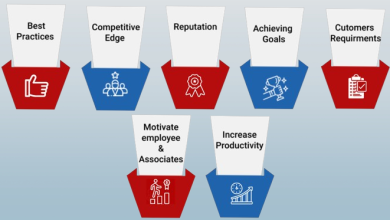Whether you are in school, college or going for a big corporate job; hard skills and soft skills are a necessity. They reflect your ability to adapt and perform. But how to define them? How to clearly label them? If you are looking for answers to these questions then you have stumbled upon the right blog.
As valuable as hard skills are, savvy businesses understand that top performers have a different set of abilities that may be more difficult to develop: soft skills. It turns out there is no right or wrong answer when it comes to hard vs soft skills. It is important to nurture both these skills in new hires as well as seasoned pros.
So, what are the differences between hard skills and soft skills? This guide will help you get started and includes extensive listings of examples, training and other resources.
What are Hard Skills?
Hard skills are learnable. They are more focused on a job-based or specific field of work. Hard skills are frequently referred to as “Discipline Related” or “Content Specific” abilities since they have a strong connection to a particular major or programme of study. Hard skills tend to be consistent, irrespective of the organisation you work for, your circumstances, or your coworkers.
Hard skills are objective skills which help people to be proficient in a job field, study, or any particular area of work. Hard skills are like the backbone of a job or a field of work you are interested in. Observing, measuring, and quantifying them might be straightforward. For each hard skill, there is usually a clear-cut way to master it.
Examples of Hard Skills?
An architect learns to design buildings, a therapist learns to counsel patients, and a nursing student learns how to give a shot. These are some of the examples of hard skills.
These are some of the examples of hard skills:
| Database Management | Graphic Design |
| Blockchain | Computer Programming |
| Teaching/Instruction | Writing and Editing |
| Plumbing | Bookkeeping |
| Surgical Proficiency | Musical Ability |
| Proficiency in a Foreign Language | Inventory Control |
| Product Management | UI/UX Design |
Why are Hard Skills Important?
Hard skills are important to form a lifelong career-oriented backbone. Hard skills have significance because they form the foundation for your future job, career prospects and the services your future company creates. You would not hire a Data Analyst who does not know how to analyse the data. Hard skills training guarantees that you are prepared to perform well in your chosen areas, speciality and field.
There are many online platforms which provide excellent hard-skill development certification programmes. These programmes or certifications are pocket-friendly, user friendly and have a great work-life balance schedule.
What are Soft Skills?
Soft skills are abilities and skills that are more difficult to pin down and somewhat more difficult to define. These are interpersonal abilities that, in general, facilitate good communication, cooperation, and interpersonal harmony. Soft skills are related to how someone behaves around other people, sets priorities in their life, and regulates their feelings and behaviour.
Soft skills are difficult to teach explicitly. Soft skills include things like teamwork, ethics, and general awareness. Soft skills can be difficult for workers who are just starting their careers or who are changing careers, particularly when it comes to their relationships with coworkers. Soft skills are not directly related to a particular major or field of study.
Because they can “transfer” across all disciplines and are relevant to all industries or vocations, soft skills are also frequently referred to as transferable talents.
Soft skills are difficult to identify, measure, or quantify. They are usually connected to an individual’s personality and behavioural characteristics.
You can learn soft skills through training in your school, college, certification or your job role.
Why are Soft Skills Important?
According to a Harvard University study, hard skills account for only 20% of an individual’s career achievements, whereas soft skills account for as much as 80%. Even further, other studies have been done, bringing those numbers down to 15% and 85%, respectively.
Modern success is determined by more than just obtaining the necessary credentials and laying the proper educational foundations. Your hard skills can be fully utilised with the support of your soft skills. Soft skills are constantly highlighted in your job applications because employers are looking for people with them. The routines and characteristics that define your ability to work both independently and collaboratively are an important part of your lifestyle and your career.
Examples of Soft Skills?
There are many simple examples of soft skills. Soft skills include skills like communication, interpersonal, human relations, social, organisational, time management, critical thinking, and problem-solving abilities.
| Work Ethic | Critical Thinking |
| Flexibility | Patience |
| Time Management | Multitasking |
| Attention to Detail | Responsibility |
| Cultural Awareness | Sensitivity |
| Leadership | Mentoring |
| Networking | Negotiation |
Training for Soft Skills
Numerous websites offer top-notch certification programmes for developing soft skills. These programmes are affordable, easy to use, and offer a fantastic work-life balance plan. Let’s explore some of the best websites, costs, and courses for online soft-skill training:
Hard Skills vs Soft Skills
Soft skills are character attributes that help foster relationships and provide solutions to challenges in the workplace, whereas hard skills are tied to specialised technical knowledge. Additionally, soft skills enable you to make the most of your hard skills. Soft skills show the capacity to collaborate with people and advance within an organisation, whereas hard skills can be measured.
| Hard Skills | Soft Skills |
| Programming Languages (Python, Java, JavaScript) | Communication (Verbal, Written, Active Listening) |
| Cloud Computing (AWS, Azure, GCP) | Teamwork (Collaboration, Conflict Resolution, Problem-Solving) |
| Data Science (Machine Learning, Statistics, Data Analysis) | Critical Thinking (Analytical Thinking, Problem-Solving, Decision Making) |
| Cybersecurity (Network Security, Ethical Hacking) | Adaptability (Learning Agility, Open-Mindedness, Flexibility) |
| Digital Marketing (SEO, SMM) | Time Management (Organisation, Prioritisation, Deadline Adherence) |
Conclusion
Ultimately, developing both hard and soft abilities in an integrated manner is the key to a successful career. You may build a career that can successfully handle any obstacles you may face at work by integrating both hard and soft talents into your professional life. Learning can help you find the right skill development approach to both that works for hard skills and soft skills. You can explore more online courses and certifications. So, get your learning helmets on!





